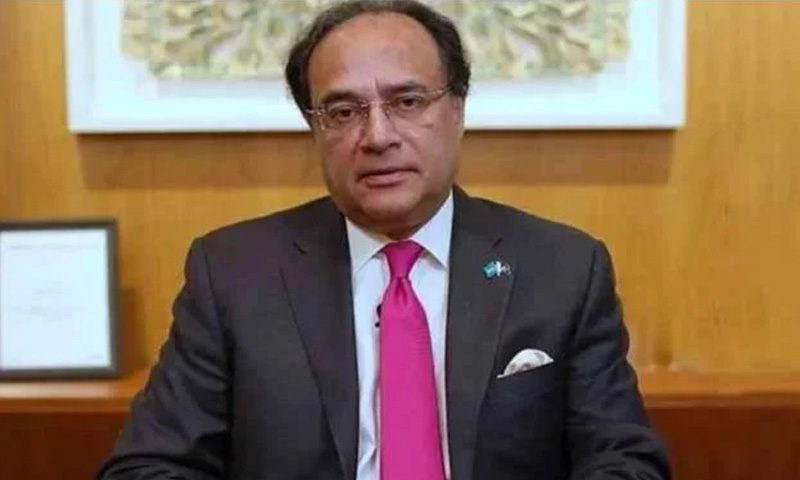- Web
- Feb 05, 2026
Aurangzeb says IMF very ‘receptive to longer programme’
-

- Web Desk
- Apr 22, 2024

WASHINGTON: Finance Minister Muhammad Aurangzeb has indicated that the International Monetary Fund (IMF) is very receptive to considering a longer and larger economic programme for the country as it aims to revive its struggling economy.
Aurangzeb, a former banker, spoke optimistically about Pakistan’s economic prospects during an interview at the Pakistan embassy in Washington, following discussions at the IMF and World Bank Spring Meetings.
“We are on track to secure a new IMF loan, and macroeconomic conditions are turning in our favour,” Aurangzeb told The National, a UAE-based publication.
Pakistan, which received a $3 billion bailout last year to avert defaulting on its debts, is reportedly seeking a $6 billion IMF loan. Aurangzeb described this figure as a “guesstimate,” with final details to be determined during an upcoming IMF mission to Islamabad next month.
Aurangzeb, who assumed office last month after Prime Minister Shebaz Sharif’s election, highlighted the significance of remittances to Pakistan’s economy, particularly from the approximately one million Pakistanis residing in the UAE. He noted that despite earlier predictions of a decline, remittances are increasing and expected to reach around $29 billion this fiscal year.
These inflows are crucial for stabilizing Pakistan’s currency, which depreciated by over 40% against the dollar during the pandemic. Aurangzeb assured that the rupee is now stable and projected to depreciate by 6% to 8% annually moving forward.
Also read: IMF approves Pakistan’s request for bailout package
Regarding economic reform, Aurangzeb emphasized the need for sustained IMF support over three years to implement reforms across sectors such as taxation and energy.
Despite challenges, Aurangzeb highlighted positive developments in Pakistan’s economy, such as the growth of the tech sector to $3.4 billion and the recovery of agricultural production from the 2022 floods.
However, Aurangzeb acknowledged that large-scale manufacturing remains sluggish due to high energy costs and interest rates. To attract more foreign investment, Pakistan has established a Special Investment Facilitation Council and is actively engaging with countries like Saudi Arabia to boost investment.
Reflecting on China’s investments through the China–Pakistan Economic Corridor (CPEC), Aurangzeb noted that Pakistan needs to expedite monetization of CPEC projects, particularly through boosting exports from special economic zones.
“We have been slow over the last few years,” Aurangzeb admitted, expressing the government’s commitment to advancing CPEC Phase Two to accelerate revenue generation from these projects.




